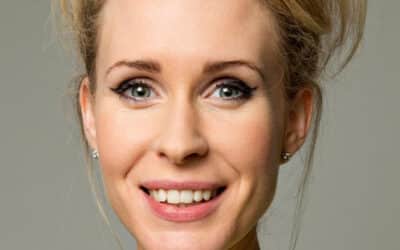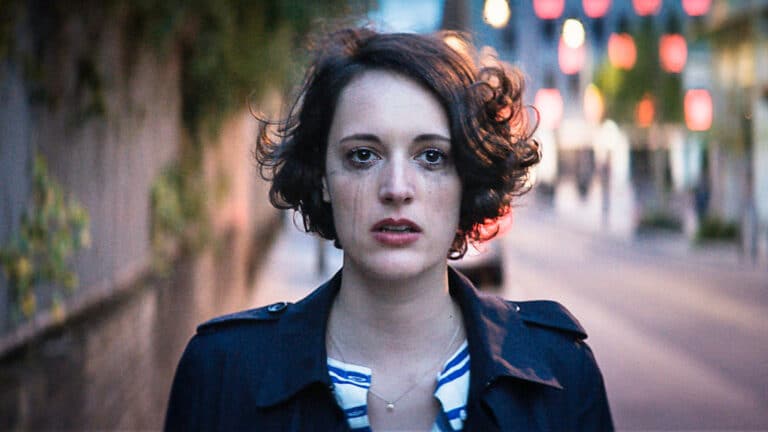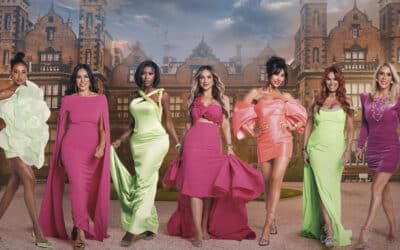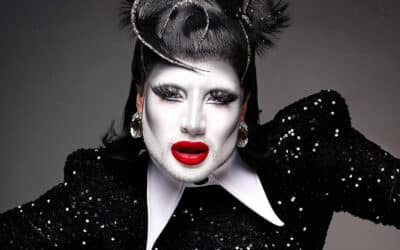A Salford academic has published a groundbreaking book that explores the rise of female comedy authors in UK television over the last decade.
Dr Laura Minor, a lecturer in television studies at the University of Salford, details in her new book, Reclaiming Female Authorship in Contemporary UK Television Comedy, how the likes of comedy writers and performers Julia Davis, Phoebe Waller-Bridge, Caitlin Moran, Michaela Coel and Sharon Horgan marked the proliferation of female-centric comedy between 2010 and 2020.
The celebrated female authors were the brains behind some of the last decade’s most acclaimed UK comedies, such as the BBC’s Fleabag, Motherland and I May Destroy You, Channel 4’s Catastrophe & Chewing Gum and Sky’s Camping & Sally4Ever.
Dr Minor profiles how these celebrated female authors flourished in the contemporary televisual landscape, identifies emerging genre trends that these authors explore within their work and updates cinema and media academic Kathleen Rowe’s theory of the ‘unruly woman’ based on the changes in contemporary comedy.
The book expanded on the research that Dr Minor conducted for her PhD at the University of Leeds, in which she explored how female authorship in UK television comedy was rapidly growing within the industry.
In the book, Dr Minor argues that this landmark moment for women in UK television comedy coincided with the fourth-wave feminism movement in the 2010s and the advent of digital television and streaming services.
She said: “During the fourth wave of feminism, we moved into an area where it became really interested in technology, particularly the use of the internet and social media. Humour then became a really defining factor, and feminists used humour through these mediums to challenge the status quo as a call for justice.
“There was also the changing nature of celebrity through the rise of social media, which means that we saw more democratic forms of stardom now with female comedians able to gain recognition and success from this, which, coupled with the advent of digital television and streaming services, transformed viewing habits and changed the way that people engaged with comedy.
“Previously, female comedian writers and performers would have had to rely on being discovered by agents, producers or managers, but now they can build their own audience, create their own content and bypass those traditional gatekeepers, so the landscape has been forever changed.”
Dr Minor explained that Kathleen Rowe’s concept of the ‘unruly woman’ formed the basis for how women in comedy were perceived for a long time. According to this theory, the ‘unruly woman’ in television comedy typically displays several key characteristics: she dominates men, speaks excessively and often makes self-deprecating jokes. These traits became central to how female comedic characters were portrayed and understood.
In the book, Dr Minor argues that the concept of ‘unruliness’ can be limiting when applied to contemporary female comedians. She suggests that a more nuanced approach is needed, one that considers both how women create their on-screen characters and how they’re perceived off-screen.
While she says that the number of female writers, directors, and producers working in TV has risen over the last decade and led to a more significant number of female-led productions, recently, this has come to a bit of a standstill.
She said: “There has been a notable drop in the number of people working in television, and women and those from ethnic minority backgrounds are planning to leave the industry, which creates additional barriers for female TV comedians who are trying to get their projects off the ground.
“Getting funding and support has become even more challenging, so we’re kind of taking a little step backwards in diversity, and the progress we’ve made in recent years is really at risk.”














